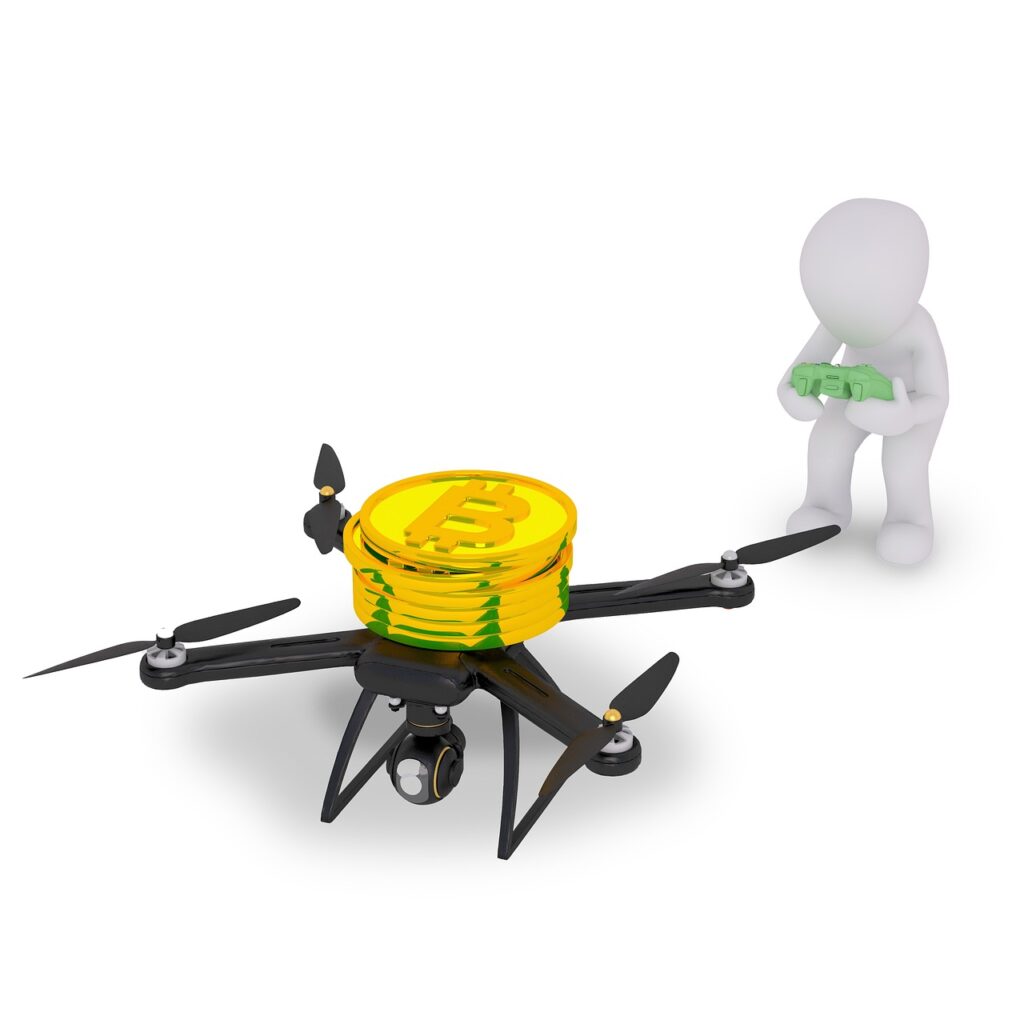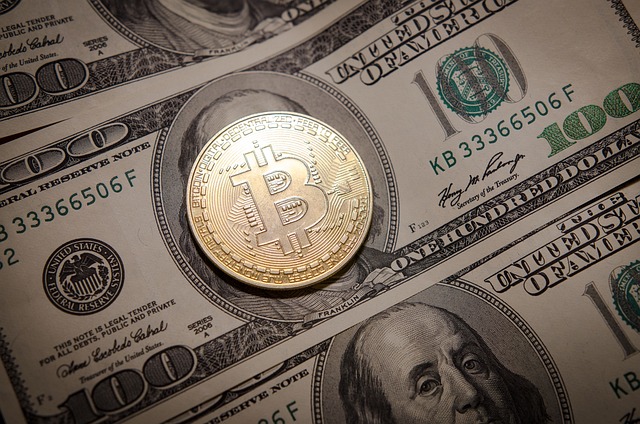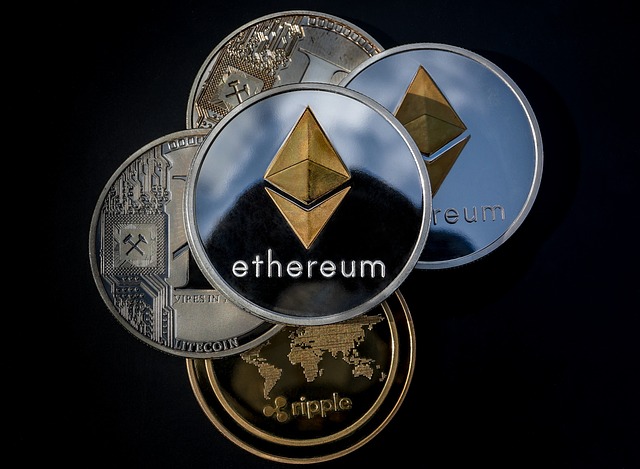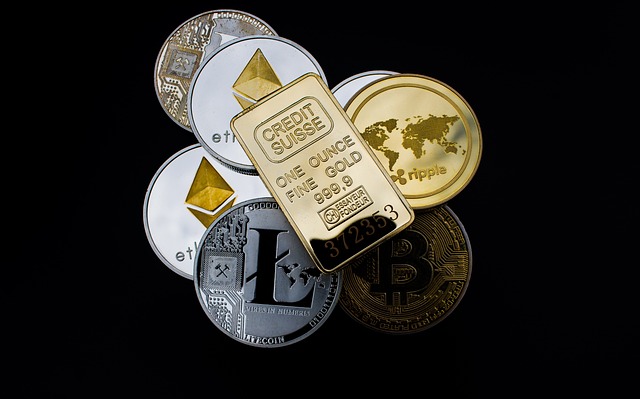Investing Wisely: Harnessing Decentralized Finance Advantages
Investing Wisely: Harnessing Decentralized Finance Advantages

Decentralized Finance: The Future of Investing
Decentralized finance, also known as DeFi, has been generating a buzz in the investment world, and for good reason. With traditional financial systems facing limitations and inefficiencies, many are turning to DeFi as a possible solution. The concept of DeFi revolves around using blockchain technology to create decentralized applications that enable individuals to have control over their financial transactions without the need for intermediaries such as banks or financial institutions. This decentralized approach not only has the potential to revolutionize investing but also offers numerous benefits to investors.
One of the key advantages of DeFi is the elimination of intermediaries, which gives investors greater autonomy and control over their investments. By cutting out the middlemen, investors can engage directly with smart contracts on the blockchain, reducing costs, and removing the need to rely on third parties. Additionally, DeFi opens up access to financial services to those who are unbanked or underbanked, providing opportunities for a more inclusive economy. With the rise of decentralized lending, borrowing, and yield farming platforms, DeFi is offering innovative ways for individuals to grow their wealth and participate in the global financial market. As the popularity of DeFi continues to rise and technology evolves, it is becoming increasingly clear that decentralized finance holds enormous potential for the future of investing.
Understanding the Basics of Decentralized Finance
Decentralized Finance, also known as DeFi, is a revolutionary concept that is transforming the traditional financial system as we know it.

One of the key foundations of DeFi is the use of blockchain technology. Blockchain provides a secure and immutable ledger that records all transactions, making it practically impossible to alter or manipulate the data. By leveraging blockchain technology, DeFi platforms are able to create a trustless environment where transactions can occur without the need for third-party validation. This not only increases security but also eliminates the need for costly and time-consuming middlemen, reducing transaction fees and enabling faster settlement times. Through DeFi, individuals around the world can now access financial services with just a smartphone and an internet connection, bypassing the limitations and restrictions imposed by traditional financial institutions.
Why Decentralized Finance is Gaining Popularity
Decentralized finance, commonly referred to as DeFi, has been rapidly gaining popularity in recent years. One of the key reasons behind its growing appeal is the increased accessibility it offers to individuals worldwide. Unlike traditional finance systems that require intermediaries like banks, DeFi allows anyone with an internet connection to participate in financial activities such as lending, borrowing, and investing. This inclusivity has opened up a world of opportunities for people who were previously excluded from traditional financial systems due to factors like geographical restrictions or lack of access to banking services.
In addition to its accessibility, DeFi is also gaining popularity because of its potential for higher returns on investment. Traditional finance often relies on centralized institutions that control and regulate the flow of funds, which can result in limited options and lower returns for investors. On the other hand, DeFi operates on blockchain technology, eliminating the need for intermediaries and enabling peer-to-peer transactions. This decentralized nature allows for greater transparency, lower fees, and the potential for higher yields. As a result, many investors are turning to DeFi platforms to diversify their portfolios and take advantage of the opportunities presented by this emerging financial ecosystem.
Exploring the Advantages of Decentralized Finance
Decentralized finance, or DeFi, has emerged as a revolutionary concept in the world of investing. One of the key advantages of DeFi is its ability to provide greater financial inclusivity. Traditional financial systems often exclude individuals who lack access to banks or credit institutions. However, with DeFi, anyone with an internet connection can participate in various financial activities, such as lending, borrowing, and trading, without the need for intermediaries like banks or brokers. This opens up a world of opportunities for those who have been marginalized by the current financial system, empowering them to take control of their financial lives.
Another advantage of DeFi is its transparency. In traditional finance, transactions are usually carried out behind closed doors, making it difficult for individuals to fully understand how their money is being managed. With DeFi, transactions are recorded on a public blockchain, which allows for complete transparency and traceability. This means that every transaction can be verified, ensuring that there is no room for fraudulent activities. Moreover, the decentralized nature of DeFi eliminates the need for trust in intermediaries, as smart contracts are used to automate and enforce the terms of the financial agreements. This enhances security and reduces the risk of manipulation or malfeasance.
How to Get Started with Decentralized Finance
Getting started with decentralized finance may seem intimidating at first, but it doesn’t have to be. Here are a few simple steps to help you dip your toes into this exciting world of investing. First and foremost, educate yourself about the basics of decentralized finance. Familiarize yourself with terms like blockchain, smart contracts, and decentralized applications (DApps). There are plenty of resources available online, such as articles, forums, and video tutorials, that can provide you with a solid understanding of how decentralized finance works.
Once you have a good grasp of the fundamentals, the next step is to set up a digital wallet. A digital wallet is where you will store your cryptocurrencies and interact with decentralized finance platforms. There are several wallet options available, both online and offline, so take your time to research and choose one that suits your needs. It’s important to prioritize security when selecting a wallet, so opt for one with strong encryption and two-factor authentication. Once you have your wallet set up, you can start acquiring cryptocurrencies through a reputable exchange and begin exploring various decentralized finance platforms.
Identifying the Risks and Challenges of Decentralized Finance
While decentralized finance offers numerous advantages, it is essential to acknowledge the potential risks and challenges associated with this emerging field. One major concern is the susceptibility to security breaches. Since decentralized finance relies heavily on blockchain technology, any vulnerability in the underlying infrastructure can lead to hacks and theft of user funds.


Another challenge of decentralized finance is the lack of regulatory oversight. As this ecosystem operates outside traditional financial systems, there is minimal government intervention or protection for users. This absence of regulations can make it difficult for investors to resolve disputes or seek compensation in case of fraud or misconduct. Furthermore, the rapid growth of decentralized platforms has led to a proliferation of new projects without proper evaluation or due diligence, which increases the likelihood of encountering scams or poorly executed projects. Being aware of these risks is crucial for investors to make informed decisions and navigate the world of decentralized finance.
Key Factors to Consider Before Investing in Decentralized Finance
When considering investing in decentralized finance, there are several key factors that you should keep in mind. First and foremost, it is crucial to thoroughly research and understand the underlying technology and principles behind decentralized finance. This includes familiarizing yourself with concepts such as blockchain, smart contracts, and decentralized applications (dApps). Having a solid understanding of these technologies will enable you to make more informed investment decisions and mitigate potential risks.
Another important factor to consider is the security aspect of decentralized finance. While decentralized systems are designed to be secure and resistant to hacking, it is still crucial to exercise caution and take necessary precautions. This includes using reputable decentralized finance platforms, implementing strong security measures such as two-factor authentication, and regularly updating your software. Additionally, it is advisable to start with small investments and gradually increase your exposure as you gain more confidence and familiarity with the decentralized finance landscape. Remember, investing in decentralized finance can offer great potential for growth, but it is essential to approach it with careful consideration and diligence.
Diversifying Your Portfolio with Decentralized Finance
Decentralized finance (DeFi) offers exciting opportunities for diversifying your investment portfolio. With traditional investment options often limited to stocks, bonds, and real estate, DeFi opens up a whole new world of possibilities. By investing in decentralized cryptocurrencies, protocols, and platforms, you can gain exposure to various sectors and assets that were previously inaccessible.
One of the main advantages of diversifying your portfolio with DeFi is the potential for higher returns. The decentralized nature of these investments allows for greater innovation and faster growth compared to traditional finance. Additionally, DeFi investments are not limited by geographical boundaries, giving you the opportunity to tap into global markets, industries, and technologies. By spreading your investments across different DeFi projects, you can minimize risk and potentially maximize your returns in this rapidly evolving landscape.
Tips for Maximizing Returns in Decentralized Finance
As you embark on your journey into decentralized finance, you may be wondering how to make the most out of your investments. While there is no foolproof strategy to guarantee high returns, there are a few tips that can help increase your chances of success.
First and foremost, it is crucial to conduct thorough research before diving into any investment opportunity. Understand the underlying technology, read whitepapers, and analyze market trends. By staying informed, you can make more informed decisions and mitigate the risks involved. Additionally, consider diversifying your portfolio to spread out your investments and reduce the impact of potential losses. By allocating your funds across various decentralized finance projects, you can lower the risk of being heavily dependent on a single asset.
The Role of Decentralized Finance in the Global Economy
Decentralized finance (DeFi) has emerged as a game-changer in the global economy. Unlike traditional financial systems that rely on intermediaries like banks, DeFi allows for peer-to-peer transactions through blockchain technology. This decentralized approach has the potential to revolutionize various sectors, including banking, lending, insurance, and investment.
One of the key roles of DeFi in the global economy is its ability to provide financial services to the unbanked population. According to the World Bank, around 1.7 billion adults worldwide do not have access to a traditional banking system. DeFi offers an inclusive solution by allowing anyone with a smartphone and internet access to participate in the global financial ecosystem. This level of accessibility has the potential to empower individuals in developing countries and promote financial inclusion on a global scale. Additionally, DeFi’s decentralized nature helps to eliminate barriers and restrictions that traditional financial institutions often impose, making it a more democratic and accessible option for individuals around the world.
• DeFi allows for peer-to-peer transactions through blockchain technology
• Revolutionizes sectors such as banking, lending, insurance, and investment
• Provides financial services to the unbanked population globally
• Offers inclusive solution accessible to anyone with a smartphone and internet access
• Empowers individuals in developing countries and promotes financial inclusion
• Eliminates barriers and restrictions imposed by traditional financial institutions
What is decentralized finance?
Decentralized finance, also known as DeFi, refers to a financial system that operates on the blockchain without the need for intermediaries like banks or brokers.
Why is decentralized finance gaining popularity?
Decentralized finance is gaining popularity because it offers greater financial freedom, transparency, and accessibility compared to traditional financial systems.
How can I get started with decentralized finance?
To get started with decentralized finance, you can start by familiarizing yourself with popular DeFi platforms and understanding how they work. Then, you can start investing or participating in various DeFi projects.
What are the advantages of decentralized finance?
Some advantages of decentralized finance include lower fees, faster transactions, greater accessibility, permissionless participation, and the ability to maintain control over your own funds.
What are the risks and challenges of decentralized finance?
Risks and challenges of decentralized finance include the potential for smart contract vulnerabilities, market volatility, regulatory uncertainties, and the risk of scams or hacks.
What factors should I consider before investing in decentralized finance?
Before investing in decentralized finance, it’s important to consider factors such as the project’s track record, team expertise, security measures, liquidity, and potential returns.
How does decentralized finance contribute to the global economy?
Decentralized finance has the potential to democratize access to financial services, promote financial inclusion, and provide opportunities for individuals and businesses around the world to participate in a global financial system.
How can decentralized finance help diversify my portfolio?
Decentralized finance allows you to invest in a variety of assets, such as cryptocurrencies, stablecoins, and tokenized assets, which can help diversify your investment portfolio and reduce risk.
Any tips for maximizing returns in decentralized finance?
Some tips for maximizing returns in decentralized finance include doing thorough research, diversifying your investments, staying updated with market trends, and using risk management strategies.
Can I trust decentralized finance platforms with my funds?
While decentralized finance platforms strive to provide security and transparency, it’s important to do your own research, use platforms with a good reputation, and be cautious with the amount of funds you invest.
Todays Featured Product:
Buy, exchange and grow your crypto securely with a Ledger hardware wallet, combined with the Ledger Live app. It’s never been easier to keep your crypto safe and accessible. Buy direct from Ledger.com and get todays Special Offers Here.




